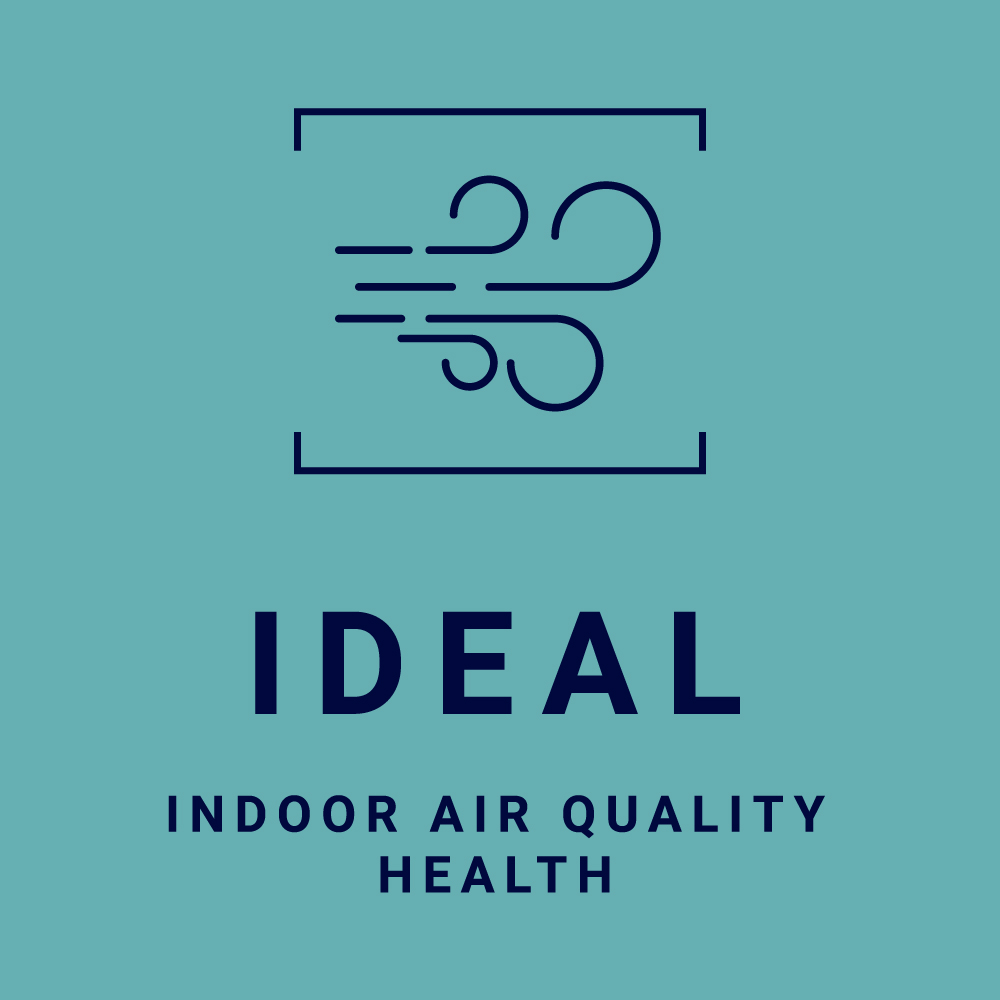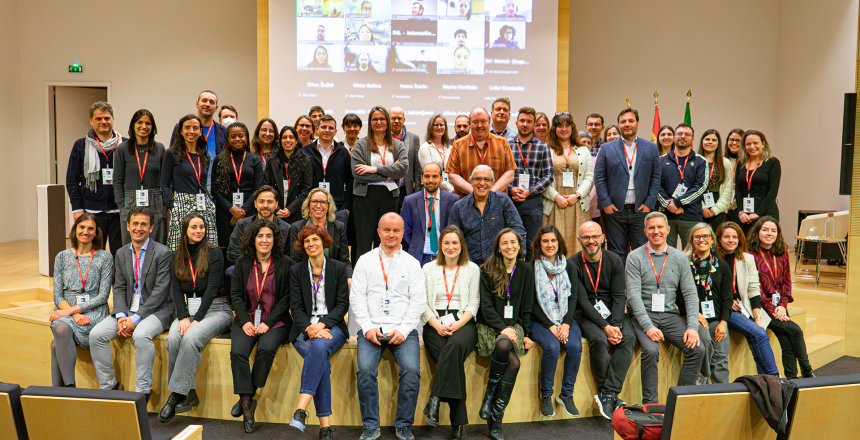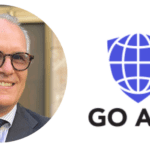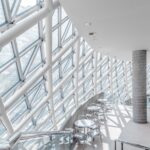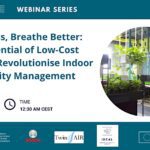The IDEAL Cluster for Indoor Air Quality and Health gathered its seven Horizon Europe-funded projects for the Annual Meeting in Braga, Portugal, with the goal of strengthening synergies, sharing scientific progress, and paving the way toward common goals that will impact the future of healthier indoor environments across Europe.
The event was hosted by the LEARN project, at the headquarters of its coordinating institution, International Iberian Nanotechnology Laboratory (INL), which also leads the IDEAL Cluster from September 2024 to April 2025.
Key contributions from across the Cluster
The IDEAL Cluster unites seven projects: INCHILDHEALTH, INQUIRE, K-HEALTHinAIR, LEARN, SynAir-G, TwinAIR, and EDIAQI, working at the intersection of air quality, health, sensors, in-vitro science, communication, and policy. The cluster aims to foster healthier indoor environments by advancing research and innovation in areas such as ventilation, pollution exposure, and indoor climate.
This year’s meeting brought together around 50 researchers and R&I professionals, both in-person and online, to reflect on shared goals, align efforts, and explore new synergies across this growing network.
European Commission Participation
The meeting counted on the valuable presence and insights of several EU representatives:
- Rita Araújo (DG RTD, Project Officer).
- Marco Morini (DG ENER).
- Lorena Korosec and Josefina Lindblom (DG ENV).
They provided updates on policy priorities including the Energy Performance of Buildings Directive, Zero Pollution Action Plan, and Level(s) Framework for Sustainable Buildings.
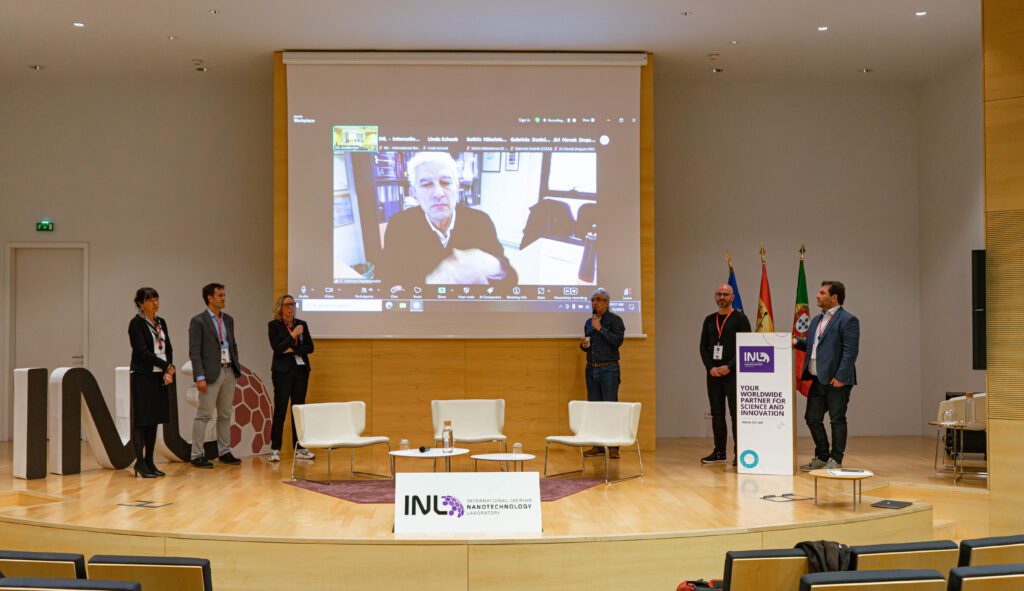
Workshops and Working Groups: From Science to Policy
The agenda was rich with interactive sessions, engaging workshops, and panel discussions. The diversity of approaches and project strengths demonstrated the cluster’s unique value: bridging scientific expertise with societal needs.
Participants engaged in several working sessions throughout the two days:
- WG1 – Policy and Joint Policy Briefs: Chaired by Carla Martins (K-HEALTHinAIR) and Alex Borg (EDIAQI), this session introduced the structure and goals of the upcoming Joint Policy Brief 2 (JPB2), with a special focus on improving indoor environments for children. A roundtable discussion invited all projects to contribute perspectives and policy-relevant data.
- WG2 – Data Analysis, Management and Protection: Led by Sylvie Remy (INQUIRE), this session addressed data governance and interoperability across projects. Highlights included a presentation of the Collaboration Agreement on personal data exchange and a demo of the Indoor Air Quality Data Platform by Tony Anto (TwinAIR), followed by an open discussion on common challenges in data integration.
- WG3 – Communication and Dissemination: Co-chaired by Marina Marcos Macarro (LEARN) and Renata Cervantes (INCHILDHEALTH), this session shared lessons learned and successful strategies for reaching diverse audiences. Notable contributions included: EDIAQI’s webinar series, wiki, and chatbot, LEARN’s board game and digital campaigns and INCHILDHEALTH’s citizen science activities.
- WG4 – Guidelines and Standardisation: Facilitated by Stefan Kelnberger (SynAir-G), this session discussed how scientific results from the cluster could support standardisation processes and policy recommendations. Contributions included INQUIRE’s roadmap for healthier indoor air habits and strategies to transfer research into practical guidelines.
- WG5 – Sensors: Led by Vasileios Salamalikis (INQUIRE), this technical session featured innovations in low-cost, open-source, and high-performance sensors. Speakers from multiple projects presented advances in: UFP and VOC detection (LEARN), Portable IAQ tools (K-HEALTHinAIR), Citizen-led sensor deployment (EDIAQI) and Open-source monitors (TwinAIR).
- WG6 – Health Outcomes: This session focused on early epidemiological and cohort study findings, highlighting how air quality interventions relate to health outcomes. Presentations included: Asthma and COPD patient monitoring (K-HEALTHinAIR), Cohorts in Belgian schools (LEARN) and Observations from EDIAQI’s initial health studies.
- WG7 – In Vitro Models: Chaired by Ernesto Alfaro-Moreno, this session covered experimental methodologies for assessing indoor air toxicity. Key topics included: Endocrine disruption and inflammatory markers (INQUIRE), Skin-on-a-chip and multisensing tools (LEARN), Formaldehyde exposure setups (K-HEALTHinAIR) and Toxicological protocols from EDIAQI.
- WG8 – Microbiome: Led by Mario Lovric (EDIAQI), this final session explored microbial diversity in indoor environments, including case studies on bacterial and fungal profiles from K-HEALTHinAIR and EDIAQI. The discussion emphasized the emerging importance of microbiome analysis in IAQ research.
A people-centered approach with policy impact
Throughout the sessions, the emphasis remained on translating research into action, ensuring that innovation meets real-world challenges. Discussions highlighted the need for solutions that address climate adaptation, energy transitions, and public health—while putting people’s well-being at the center.
Participants also explored how strategic communication and stakeholder engagement can amplify the cluster’s collective impact, from webinars and gamification to cross-project collaborations and citizen science.
Looking ahead: strengthening the IDEAL Cluster
Beyond technical discussion, the meeting fostered a strong sense of community and shared mission. The cluster reaffirmed its commitment to joint initiatives, coordinated dissemination, and mutual learning, setting the stage for even stronger cooperation in the months to come.
Special thanks go to the INL team and the LEARN project for their generous hosting and excellent coordination, and to European Commission officers whose engagement reinforced the policy relevance of the cluster’s work.
As the IDEAL Cluster continues to grow, this annual meeting reaffirmed a collective commitment: to build healthier, more resilient indoor spaces across Europe and beyond.
